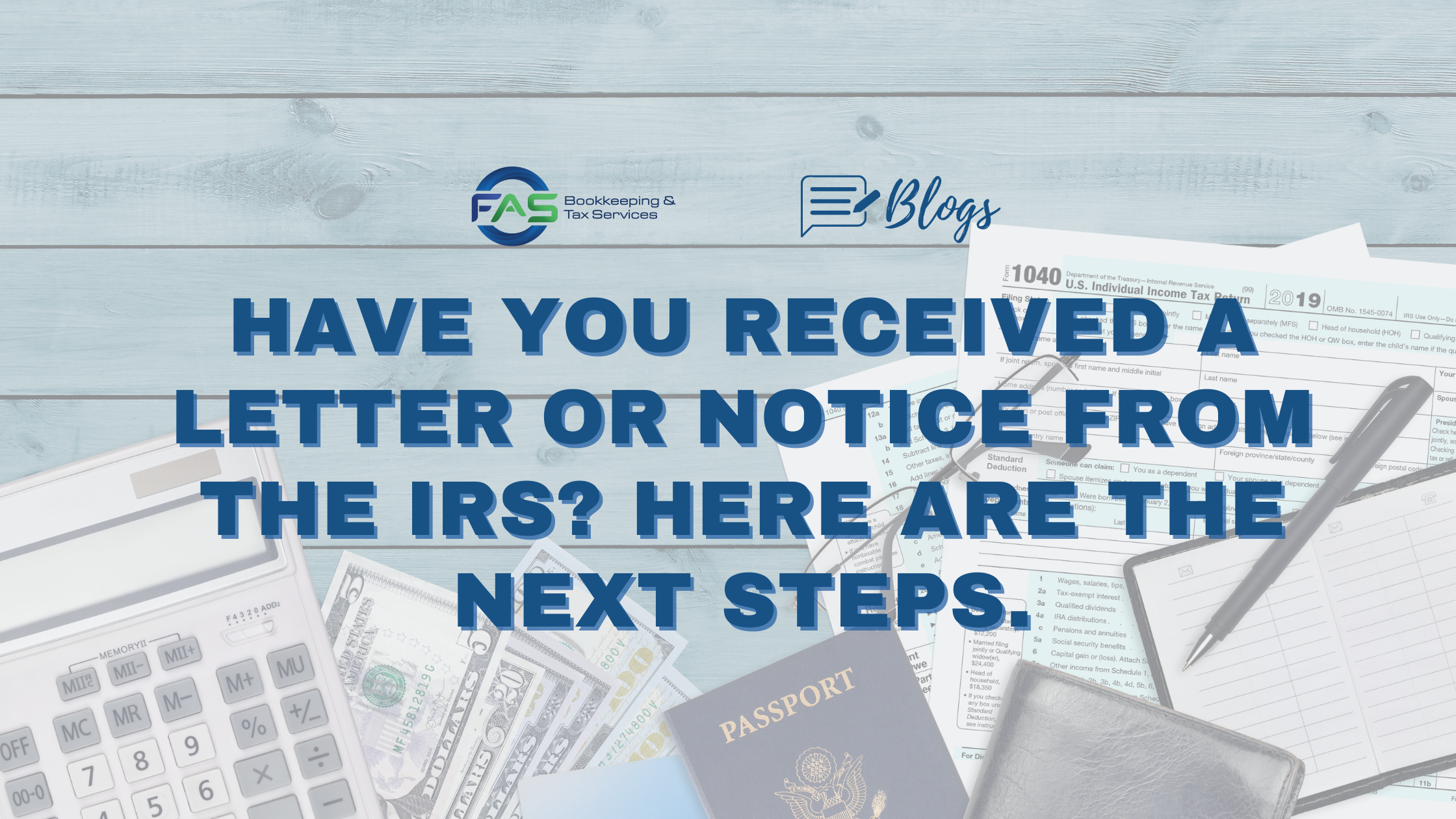Have you received a letter or notice from the IRS? Here are the next steps.
When the IRS wants to inquire about a taxpayer’s tax return, alert them of an account change, or require payment, the IRS typically sends a letter or notice to the taxpayer. Receiving a letter from the IRS can be intimidating, but the below pointers provide some stress relief.
When a letter or notice from the IRS arrives in the mail, taxpayers should take the following actions:
Read the letter carefully. The vast majority of IRS letters and notices pertain to federal tax returns or tax accounts. Each alert pertains to a distinct concern and gives detailed information on how to proceed. Changes to a taxpayer’s account, taxes owed, a payment request or a specific issue on a tax return may be referenced in a notice. By taking prompt action, further interest and penalties may be avoided.
Examine the information provided. If a letter pertains to a revised or amended tax return, the taxpayer should evaluate the material and compare it to the original return. If the taxpayer agrees, he or she should write the modifications on their personal copy of the tax return and save it for their records. In general, a taxpayer will only need to take action or contact the IRS if they disagree with the facts, if the IRS has requested additional information, or if they have an outstanding balance.
Perform any action requested, including making a payment. The Internal Revenue Service and approved commercial debt collection organizations send out letters. The majority of the time, all a taxpayer must do is attentively read the letter and take the required action or submit payment.
Respond only when instructed to do so. Taxpayers are not required to respond to notice unless instructed to do so. Typically, there is no need to contact the IRS. If a taxpayer must call the IRS, they should use the number located in the upper right corner of the notice and have a copy of their tax return and letter available.
Notify the IRS of a contested notice. If a taxpayer disagrees with the IRS, he or she must send a letter explaining why they contest the notification. Send it to the address listed on the contact stub included with the notice. When submitting a disagreement to the IRS, the taxpayer should provide relevant facts and documentation.
Maintain the letter or notice for your records. Taxpayers should save all IRS notices and correspondence. These include notices of account adjustments when action is done on a taxpayer’s account. Taxpayers must preserve records for three years from the filing date of their tax return.
Watch out for scams. Never will the IRS communicate with a taxpayer via social media or text messages. Typically, the first interaction with the IRS comes via mail. On IRS.gov, taxpayers who are uncertain whether they owe the IRS money can view their tax account information.
Questions?
Need help in preparing for an IRs audit? Let us help you be IRS audit-ready! Contact us today to learn more.





